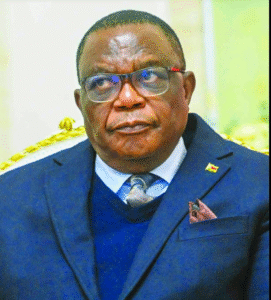ZIMBABWEANS DON’T TRUST ZEC—BUT DEMOCRACY STILL MATTERS TO THEM
A new Afrobarometer study has revealed a troubling reality for Zimbabwe’s electoral integrity: only 47% of Zimbabweans trust the Zimbabwe Electoral Commission (ZEC) to run free and fair elections. This figure reflects a deep crisis of confidence in the institution tasked with managing the country’s most important democratic process.
The trust deficit is not without cause. Memories of the disputed 2018 general election still linger in the minds of many voters. In that contest, President Emmerson Mnangagwa of ZANU PF narrowly secured 50.8% of the vote, while Nelson Chamisa of the MDC Alliance claimed 44.3%. The three-day delay in announcing the presidential results fuelled suspicions of manipulation and dishonesty. That election, much like others before it, left the public questioning whether ZEC could ever be neutral.
Now, attention turns to another Mnangagwa-Chamisa face-off, expected between 26 July and 26 August. Once again, the electoral environment is under intense scrutiny. This time, ZEC faces fresh criticism for refusing to release the voters’ roll. The commission argues that doing so would violate citizens’ privacy under the Data Protection Act. ZEC chairperson Priscilla Chigumba reiterated this in a recent parliamentary session, insisting that the law requires careful handling of voter information. Her comments came in response to a legal challenge by opposition MP Allan “Rusty” Markham, which the High Court dismissed.
According to ZEC’s latest figures, the number of registered voters has increased from five million in 2018 to six million today. ZANU PF has set its sights on claiming five million of those votes, leaving the opposition with a daunting task to win over the remaining electorate. The ruling party also boasted that three million people participated in its primary elections—figures it claims prove its popularity.
Despite these claims, Zimbabweans remain cautious. The Afrobarometer study offers some insight into voter behaviour: most citizens say they will base their choices on policy promises rather than party loyalty. There is also a noticeable trend of voters showing preference for local candidates from their provinces.
Encouragingly, the same survey shows a strong democratic spirit among the people. A significant 81% believe that the loser of an election should accept the results and work with the winner for the good of the country. This is a striking contrast to the violence and political instability that have marked many previous elections, particularly since the early 2000s.
The post-election violence in 2018, after Robert Mugabe’s removal from power, is still fresh in public memory. Soldiers opened fire on protesters in Harare, and the images were broadcast live across the world. Chamisa challenged the results in court and lost—but he still does not recognise Mnangagwa’s presidency.
In anticipation of international scrutiny, Mnangagwa has already warned against allowing election observers from what he calls “hostile” nations. He accuses them of interfering with Zimbabwe’s democracy—though many Zimbabweans would argue that interference from within is the real threat.
Even with all the challenges, a majority of citizens continue to believe in the democratic process. According to Afrobarometer, 59% think elections are an effective way to remove underperforming leaders. Furthermore, 53% believe their MPs represent their views, and an overwhelming 73% say the country needs more political parties to ensure real choice.
These numbers paint a complex picture. On one hand, there’s growing mistrust of ZEC and concern over electoral transparency. On the other, there is resilience—an unshaken belief in democracy. Zimbabweans may be frustrated, but they still see elections as a path toward change. That hope, despite everything, remains Zimbabwe’s most powerful tool for a better future.



